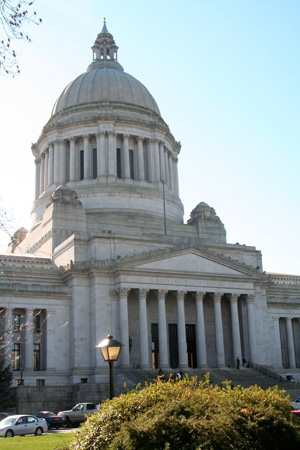AARP Hearing Center
Governor Inslee’s Supplemental Budget – Flash Analysis by AARP Washington 12/18/2013

The Governor’s supplemental budget released yesterday includes small but very significant steps towards preparing for the age wave on the horizon.
Overall, this budget proposal is very modest, with little new expenditure beyond the maintenance level. As the Governor described, “This is a hold-steady budget that keeps us whole the remainder of the biennium.”
In this context, it is particularly significant that the Governor made it a priority to include small investments that have the potential for big improvements in moving towards an age-friendly future. Seeds for innovation include funding for a long term care financing study and direction to explore private sector retirement savings options. While sorely needed new capacity for responding to adult abuse was not included, all told this proposal includes some very positive developments for the aging community.
Top Three Highlights
(Excerpts from budget documents with commentary)
1) Long Term Care Financing Study ($500k)
Retirement Actuarial Study
Funding is provided to contract for an actuarial study to examine options for leveraging private resources and delaying or diverting Medicaid utilization for long-term care services. These options include: identifying regulatory changes to encourage the development and growth of new products that combine features of life insurance, long-term care insurance and annuities; and facilitating a marketplace for private long-term care insurance policies through the Washington Health Benefits Exchange.
Note: It’s great news that this was included! Note that the title on this is confusing. We will advocate for a study of long term care financing options for people of all ages with disabilities, not only for retirees. In addition, we will be requesting that this study look at three options, not only the two outlined in this language. In addition to those listed, we will request that the study scope out a public insurance program, similar to the CLASS act provisions in the Affordable Care Act.
2) Retirement Savings Options ($250k)
Private Sector Retirement Savings
The Department of Retirement Systems will explore options for retirement savings accounts for employees of private and non-profit organizations, especially workers in small and medium-sized firms.
Note: This language sends a signal of support for the STaRT legislation (Save Toward Retirement Today). It gives the Department of Retirement systems the go ahead to scope out a system for making it easier for small businesses to offer retirement savings accounts and to request the necessary permissions from the IRS to proceed, pending legislative approval.
3) Strengthening Home and Community Based Services ($296k)
Community First Choice Option
Aging and Long-Term Support Administration (ALTSA) is providing one-time funding for three waiver managers and two data analysts. These five staff will create a viable plan to refinance Washington’s personal care delivery system by implementing Community First Choice Option (CFCO), effective July 1, 2015. Section 2401 of the Affordable Care Act establishes the CFCO as an optional Medicaid service. If a state chooses to offer CFCO, it must be offered statewide to eligible Medicaid participants. As an incentive, the federal government will pay a 56 percent share of CFCO costs, 6 percent higher than the 50 percent share paid for similar Medicaid Home and Community Based Services. CFCO refinancing will capture up to $81 million in additional federal revenue from enhanced Medicaid match to use for providing a broader range of in-home services and supports, without unintended consequences for other programs such as medical services provided by the Health Care Authority.
Note: This system reform makes sense and will leverage significant new federal funding which we will strongly advocate be re-invested in strengthening our home and community based infrastructure. CFCO is a key source of funding for expanding the Family Caregiver Support Program, restoring home care hours and addressing the Developmental Disabilities wait list.
Chief Disappointment – Protecting Vulnerable Adults
This budget does not reflect the DSHS request for up to 42 new Adult Protective Services and Residential Care Services Investigators. It is our understanding that up to 12 or more new APS investigators will be triggered by linking APS to case load growth. But a significant deficit remains, with insufficient capacity to investigate cases in a timely and effective manner, particularly in residential settings. We will continue to work with the Department on this issue, and encourage them to make reforms and improvements in training and response practices. In addition, we will advocate for full funding for the Long Term Care Ombudsman Program and the Office of Public Guardianship, key community partners in preventing adult abuse.
This flash analysis is based on quick review of a complex document. For more information, click here to view the Governor’s budget documents.
For more information contact:
Ingrid McDonald, Advocacy Director
AARP Washington
imcdonald@aarp.org, 206-330-6531































































